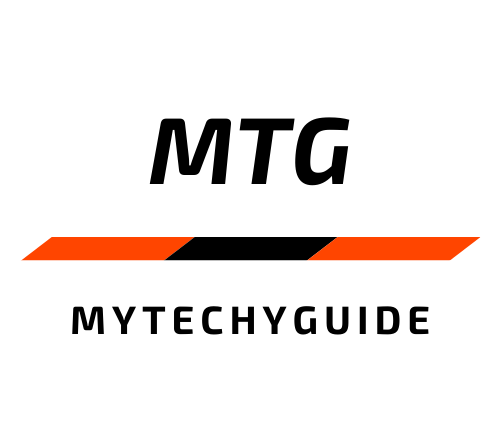today we are going to talk about Best Tips for Attending AI Online Courses in 2022

Best Tips for Attending AI Online Courses in 2022
A few years back, we didn’t think machines could replace humans. Enter the world of artificial intelligence -and here we are. Machines were thought to be capable of simply automating repetitive tasks, but AI adds a layer of human thought and makes it possible for them to make intelligent decisions. The field of artificial intelligence deals with making machines smarter and lets businesses free up time, resources, and other assets.
Students interested in kick-starting their career in AI or ML will find this to be the right time to do so. Below are some tips on how to attend online artificial intelligence courses in 2022:
1. Consider Doing a Bachelor’s Degree Program
Some students find the online route daunting and don’t know where to start. If you are looking for a well-designed education in Artificial Intelligence, the best place would be college degree programs. Top universities offer many courses, and they even offer scholarships. Some of them have online training options for those who simply don’t have the time to study on-campus. A Bachelor’s Degree will give you the basic skills needed for a Machine Learning job which means you’ll only have to focus on specialization skills after that. You can acquire those by attending online courses and special machine learning PG programs.
2. Practice Programming
AI courses involve a lot of coding, and if you aren’t familiar with stacks like C, JavaScript, and Python, you’re going to have a hard time. Spend time studying these coding languages and build a few projects. The payoff is worth it and it will show when you attend those courses. If you can study a machine learning library alongside a coding language, that would be a bonus.
3. Brush up on Mathematics and Advanced Statistics
This goes without saying, but you can’t learn AI without math. Statistics, calculus, and Algebra are the core subjects of a majority of Great Learning AI courses online. You need to be able to understand math theorems and proofs to work with AI models. Having a deep understanding of math will also make it easier to solve problems and think algorithmically. Many online courses cover these concepts, but they don’t go into the basics. As a beginner, it’s your job to get familiarized with these topics before enrolling in the course.
4. Learn Business Acumen
If an Artificial Intelligence or Machine Learning Engineer doesn’t have business acumen, they will have a tough time navigating their way in the job market. Most engineers are hired by global corporations and business brands to develop cutting-edge products and solutions. Any good machine learning pg courses or degree curriculum will have marketing included with the syllabus. Be sure to watch out for this.
5. Rapid Prototyping Skills
Being able to work with CAD software and rapidly generate ideas on the fly is a critical skill to have. Aspirants should be able to brainstorm ideas, quickly build, deploy, and scale models, and present their iterations on paper to stakeholders. You don’t have to fix rules to this since every aspirant has their way of iterating and generating concepts. Knowing about A/B testing techniques is very important, and you should be able to apply such methodologies to projects and demonstrate their effectiveness.
6. Stay Updated
Learn about the latest industry trends, read top machine learning blogs, and stay updated with what’s going on around you. Having a bird’s eye view of the market is crucial if you want to discover relevant niches. The hottest machine learning jobs are niche-specific, and finding your niche is key to a successful career. No course will teach you this, and you have to invest a lot of time studying and exploring. You can contact people in the industry, talk to them, and make new connections to get ideas. You will also end up getting good recommendations for online programs such as the Great Learning’s AI classes and AI degree pathways.
Employers Don’t Look at Your Online Certifications But…
Certifications can add some impressive credentials to your resume when you complete them. But that’s not enough to land jobs in the industry, and most employers don’t care where you graduate from. Before giving an interview, be prepared to answer what you work on and think about the niche you’re interested in. Your portfolio is your biggest selling point, and if you spend time on Active Learning other than only Machine Learning topics, you’re going to have an easier time standing out.
One of the best ways to learn specialization skills is by watching video tutorials online and reading books. You can also study the source code libraries of popular open-source projects. If you are planning on landing high-paying jobs, try to contribute or work on some of these projects. For example, if you are interested in Graph Neural Networks, try to get access to open-source graph data online and build a Torch Geometric or a simple Graph Neural Net for your portfolio.
Another good strategy when it comes to advancing your career is sending emails to prospects. Don’t write generic emails but ask industry questions and be specific. Employers receive tons of emails, spam, and junk mail, so yours has to be relevant and not get ignored. You can ask questions such as – ‘What do they think about current ML industry affairs,’ ‘what do you like about their company and queries about what they do,’ ‘what are their favorite papers on the latest ML topics,’ etc.
If you are adding projects to your resume, build stuff around Computer Vision and Natural Language Processing (NLP). These are two Machine learning subsets that are always trending and are in high demand.
Conclusion
Now that you’re aware of how to prepare for AI/ML online courses and certifications, you’re ready to start a career. If you’re interested, you can access free educational resources about Machine Learning and AI on our GreatLearning blog. GreatLearning offers some great PG certifications in ML and AI for those who are interested in excelling in this field and walks beginners through all modules step-by-step.


Nice Post